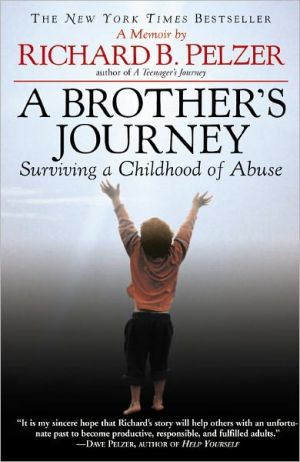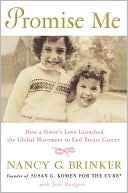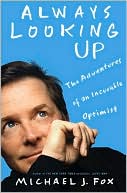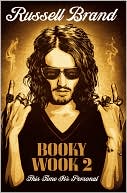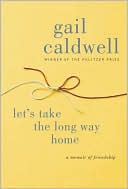Brother's Journey: Surviving a Childhood of Abuse
- A Brother's Journey will appeal to the same audience that made #1 New York Times bestsellers of Dave Pelzer's popular novels: A Child Called "It" (Health Communications, 1995), The Lost Boy (Health Communications, 1997), and A Man Named Dave (E.P. Dutton, 1999), which have sold over six million copies combined. - There is a strong market for memoirs detailing traumatic experiences, as demonstrated by the success of A Million Little Pieces (Nan A. Talese, 4/03) and Running With Scissors (St....
Search in google:
Dave Pelzer's bestselling memoir, A CHILD CALLED IT, introduced the world to the Pelzer family and the shocking abuse that took place in their home. Dave was fortunately rescued from the Pelzer household by the time he was twelve, but at this point, his brother Richard became the target of their mother's alcohol-fueled rage. Subject to nocturnal beatings, denied clean clothes, and forced to swallow Tabasco sauce, Richard Pelzer suffered daily abuses throughout the remainder of his childhood. Now, for the first time, he shares his story. At once disturbing and uplifting, it is the story of a boy who found the courage to survive years of physical abuse - and how the human spirit can triumph even through the most sever and horrific circumstances. Publishers Weekly In this gripping, deeply troubling memoir, a follow-up to his brother David's bestselling A Child Called It, Pelzer reveals the unyielding suffering he says he experienced at the hands of his depraved mother growing up in the 1970s. Once David, the elder of the two, was removed from the household, the author, by this account, became the target of their mother's alcohol-induced rage. As Pelzer details his outward struggle to survive-learning to fall asleep with his eyes open, for example-and his internal efforts to understand and rise above his circumstances, he assaults readers with the graphic facts, told in surprisingly matter-of-fact language, about being beaten bloody for falling asleep when he was supposed to be awake, and being forbidden to bathe and forced to eat scraps from a dog bowl. Family members (including Pelzer's father), neighbors and teachers were aware of the abuse but did nothing to help, and Pelzer credits outsiders, especially his friend Ben, with finally "allowing" him to see himself more clearly. By looking back at-and then releasing-the image of the skinny, red-haired boy who wanted nothing more than his mother's love, Pelzer discovers his true spirit, which he shares courageously and selflessly here in the hope of healing himself, as well as raising awareness of and preventing child abuse. Agent, Jim Schiavone. (Jan. 5) Forecast: Print ads and a radio satellite tour to 25 markets will draw in readers who were riveted by 1995's A Child Called It (interestingly, though, Pelzer doesn't comment on It, which came under scrutiny because of allegations that its account was embellished). Copyright 2004 Reed Business Information.
A Brother's Journey\ \ By Richard B. Pelzer \ Warner Books\ Copyright © 2005 Richard Pelzer\ All right reserved.\ ISBN: 0-446-53368-8 \ \ \ Chapter One\ THAT WAS THEN ... \ Daly City, California, 1970\ In the beginning, life was fun, life was exciting, and life was good. As a five-year-old, I was tender in age and yet I was cruel and mean. I was happy to watch my brother as he was beaten or forced to perform some disgusting punishment. It was exciting to watch. It is horrifying to remember.\ I WANTED TO BELIEVE that we were a middle-class family in a middle-class San Francisco Bay Area suburb. The house was modest, as were all the houses on Crestline Avenue. There were four or five different styles of houses on the street. Each one was painted differently, and yet there was a pattern on the street that reminds me of the famous pastel houses of San Francisco's Rainbow Row. Our house was bright pink. The outside trim was pink; even the concrete steps were pink. Next door had a slightly different layout and was painted in two tones of brown. As you walked down the street, the colors of the houses would eventually repeat themselves to form a pattern. Every family on the street had pride in their yards and their houses.\ There were two dozen kids on the street, and most of them were within a few years of me in age. The boys all had bicycles and who knows what the girls had. Who cared? They were girls. They didn'tplay football, basketball, or dodgeball; they were just girls. The boys would often ride bikes around the street in packs. Mostly to show off the new seats or handlebars they just got.\ I recall particular early memories about Mom but very few about Dad. He just was seldom there. He was almost invisible. I remember Dad occasionally being in the house, but always in the background. I don't know if he had already moved out or if he was just never there anymore. It's almost as if he was a tenant, not participating in the lives of his kids. I'm not sure if it was always that way. Perhaps before I came along things were different. Maybe Dad and Mom were happy then. Maybe they were a real family then. I don't know. I don't have many other memories about my father. I simply didn't know him.\ Mom made a show of nurturing "tradition" and "family." She worked very hard at making elaborate dinners and setting the table with Hawaiian tablecloths or Chinese dishes, stemware, and tableware, depending on what she created for dinner. I used to love sitting at the table with my own Chinese teapot and decorative dishes that only I used. Each of us had a set, and each one was a different pattern and color from the rest. Those table settings always made each of us feel special. From Hawaiian to Chinese to German themes and cuisine, Mom made dinner a special event. The table was usually set better than in most restaurants in San Francisco. Candles, linen napkins, and silver always made the dining table sparkle.\ One of my best memories was constantly fighting with my younger brother, Keith, over a certain table setting. Whenever dinner was just plain baked ham, sweet potatoes, bread, corn, and applesauce, the table was set with the everyday dishes. There was one particular plate that had a chip out of the flower pattern and one fork that had a line near the top of the handle, as if something had melted a mark across the handle. Over the years Keith and I would fight over who would set the table. The rivalry over whose seat was set with the broken plate and fork was never-ending. Always in fun, but completely serious, we would swap knives and plates ten times behind each other's backs-even after the table was set. We mocked each other in defeat as dinner eventually started. The victor (whichever one of us ended up with the "broken fork" or "broken plate") shamelessly repeated:\ "I got the broken fork. I got the broken fork."\ Drive-in movies were always special events. One of the first movies I recall seeing was Disney's Bambi at the drive-in, and I was happy with the togetherness we shared as brothers. But camping was even more fun. We camped as a family-Mom, Ross, Scott, Keith, and me. Dad never camped with us, and I recall David on a camping trip only once. Nonetheless, their absence didn't change the fact that "the family" was camping. The five of us were "the family."\ Mom had a habit of spontaneously announcing that we were going. Within two hours of the announcement, Mom and the boys had the car loaded and were off to one of the local campgrounds. Ross, Scott, Keith, and I would be sitting in the car waiting for Mom in high anticipation. It was always fun to be spontaneous; so many of my camping memories are vibrant and so real that they seem as if they occurred only yesterday. But sometimes, when I think back to those times, I can't recall the color of our sleeping bags or the color of the tent.\ Some weekends, Mom would take us on day trips to the beach. The drive to Thornton Beach on the Pacific Ocean was short; it was only about twenty minutes from our house. The anticipation was too much for any five-year-old, and was overwhelming for me at that age. The beach was one of the few places we went as a family in public and were allowed to exercise the normal relationships shared among most brothers. Tossing a football from brother to brother was always part of the beach experience for us, and deliberately skipping one brother's turn just to start a fight was inevitable. Ross was about eleven, Scott was about eight, and Keith was a newborn.\ When I think back to when all of us were living together, it is not clear if there were five boys or four. It was normal for Ross, Scott, and myself to be involved in some sport or game or brotherly challenge. David was rarely there. He was never allowed to play or speak to us. He was expected to be silent and only watch as the other boys played and shared with one another. Sometimes I remember David being there, and other times I don't. So many times he was left behind in the house, just not part of our daily lives. He was part of the background-something that you know is there but isn't important.\ It has been difficult for me to force myself to remember David because I have buried those memories for so many years. As an adult, I am shocked to remember what was being done in that house. I am deeply ashamed of my own childhood participation in the horrific events. From my earliest memories, unspeakable acts of violence were happening in our family that I couldn't understand at the time. As a child, I didn't know that these acts never should have happened or been allowed to happen. The violence was a part of daily life before I can even remember.\ The harsh truth is, my childhood was a lie. Beneath the surface our family was anything but normal. There were horrible secrets in the backs of each of our minds. We all knew what they were and yet never talked about them. We were afraid to.\ (Continues...)\ \ \ \ \ Excerpted from A Brother's Journey by Richard B. Pelzer Copyright © 2005 by Richard Pelzer. Excerpted by permission.\ All rights reserved. No part of this excerpt may be reproduced or reprinted without permission in writing from the publisher.\ Excerpts are provided by Dial-A-Book Inc. solely for the personal use of visitors to this web site. \ \
\ Publishers WeeklyIn this gripping, deeply troubling memoir, a follow-up to his brother David's bestselling A Child Called It, Pelzer reveals the unyielding suffering he says he experienced at the hands of his depraved mother growing up in the 1970s. Once David, the elder of the two, was removed from the household, the author, by this account, became the target of their mother's alcohol-induced rage. As Pelzer details his outward struggle to survive-learning to fall asleep with his eyes open, for example-and his internal efforts to understand and rise above his circumstances, he assaults readers with the graphic facts, told in surprisingly matter-of-fact language, about being beaten bloody for falling asleep when he was supposed to be awake, and being forbidden to bathe and forced to eat scraps from a dog bowl. Family members (including Pelzer's father), neighbors and teachers were aware of the abuse but did nothing to help, and Pelzer credits outsiders, especially his friend Ben, with finally "allowing" him to see himself more clearly. By looking back at-and then releasing-the image of the skinny, red-haired boy who wanted nothing more than his mother's love, Pelzer discovers his true spirit, which he shares courageously and selflessly here in the hope of healing himself, as well as raising awareness of and preventing child abuse. Agent, Jim Schiavone. (Jan. 5) Forecast: Print ads and a radio satellite tour to 25 markets will draw in readers who were riveted by 1995's A Child Called It (interestingly, though, Pelzer doesn't comment on It, which came under scrutiny because of allegations that its account was embellished). Copyright 2004 Reed Business Information.\ \ \ \ \ Library JournalThe Pelzer family has become famous for keeping secrets. In Dave's best-selling memoirs, he recounted his abuse at his mother's hands. In A Brother's Journey, Richard, the youngest of the boys, adds another dimension to the family saga. Outsiders, including teachers and neighbors, were less likely to get involved in family situations when the Pelzer brothers were growing up in the 1970s. While they were aware that Mrs. Pelzer, who suffered from depression and abused alcohol, had tried to kill Dave-he had been placed in foster care-and that Richard had become the target of her abuse, they did nothing to intercede on the boys' behalf. Pelzer's story is a testament to the human heart's capacity to overcome obstacles and trauma. Narrated by Joshua Gates, this work is recommended for public libraries with large collections of audiobooks.-Pam Kingsbury, Univ. of North Alabama, Florence Copyright 2005 Reed Business Information.\ \ \ Kirkus ReviewsGut-wrenching recollections of the horrendous, years-long abuse inflicted on the author by his alcoholic, emotionally disturbed mother, and of his participation in the similar torture that his brother David described in A Child Called "It" (1999). Pelzer has a guilty conscience, it seems, and so-for therapeutic reasons-one of his aims here is to explain why he was a coconspirator in the mental and physical tormenting of his older brother some 30 years ago. As a young child, he states, he lived in constant fear that he would replace his brother as the one of the five sons their mother singled out for particularly brutal treatment. In the interest of self-preservation, then, he became Mom's accomplice, purposely creating situations that would arouse her wrath and lead to harsh punishment of David. After a time, he reports, he came to relish "the bitter sweetness of causing him harm." Finally, in 1972, the authorities removed David from the family, and eight-year-old Richard, as he had feared, became the new object of his mother's cruelty. Meanwhile, another brother took his place as her "Little Nazi." What Pelzer was subjected to beggars the imagination: Mom's tactics included bloody violence, degradation, and humiliation. Sometimes, though, the author's memory seems suspect: Could anyone physically swallow four mouthfuls of Tabasco sauce, as he asserts he was once forced to do? It's also hard to understand why no one intervened, since Pelzer makes it clear that relatives were aware of his mother's drunkenness and mental instability, neighbors witnessed the beatings, a nurse at a local hospital recognized as child abuse the battery his body had received, and school authorities hadpreviously seen the need to rescue his brother David. The author's explanation is that community awareness of child abuse is much higher today than it was in the 1970s. If so, disturbing accounts by survivors like this one must take some credit for the change. Corroborates David's memories, but provides no special insight into abuse. Agent: James Schiavone/Schiavone Literary Agency\ \
